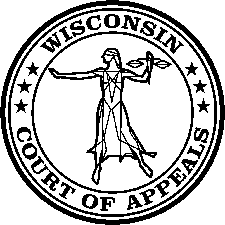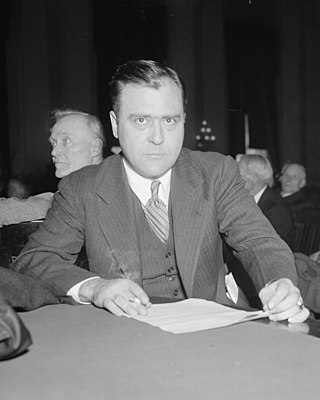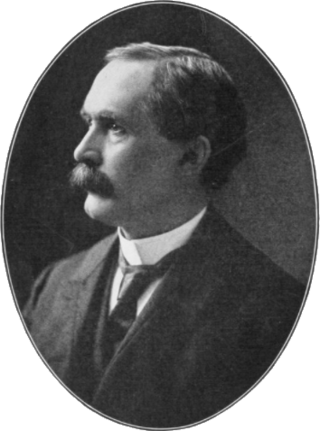Related Research Articles

James Edward Doyle Jr. is an American attorney and politician who served as the 44th governor of Wisconsin from 2003 to 2011. In his first election to the governorship, he narrowly defeated incumbent Republican governor Scott McCallum. Although in 2002 Democrats increased their number of governorships, Doyle was the only one of them to unseat a Republican.

Ann Walsh Bradley is an American lawyer and jurist, and the longest currently-serving justice of the Wisconsin Supreme Court. She was elected to the Supreme Court in 1995 and was re-elected in 2005 and 2015. She has announced she will not run for re-election again; her term expires July 31, 2025. She previously served ten years as a Wisconsin circuit court judge in Marathon County, Wisconsin.

The Wisconsin Court of Appeals is an intermediate appellate court that reviews contested decisions of the Wisconsin circuit courts. The Court of Appeals was created in August 1978 to alleviate the Wisconsin Supreme Court's rising number of appellate cases. Published Court of Appeals opinions are considered binding precedent until overruled by the Supreme Court; unpublished opinions are not. The Court hears most appeals in three-judge panels, but appeals of circuit court decisions in misdemeanor, small claims, and municipal ordinance cases are decided by a single judge.

Gerald John Boileau was an American lawyer and progressive Republican politician from Wausau, Wisconsin. He was a member of the United States House of Representatives from 1931 to 1939. After leaving Congress, he served another 27 years as a Wisconsin circuit court judge in northern Wisconsin. Later in life, he served briefly as acting circuit judge in Kenosha County.
James Edward Doyle Sr. was an American lawyer and jurist from Madison, Wisconsin. He served 22 years as a United States district judge for the Western District of Wisconsin, from 1965 until his death in 1987. Earlier in his life, as a former member of the disbanded Wisconsin Progressive Party, he played an important role in reshaping the Democratic Party of Wisconsin in the 1950s, and was the father of Jim Doyle, the 44th governor of Wisconsin.
Gregory B. Huber is a retired American lawyer, politician, and judge. He served 18 years as a Wisconsin circuit court judge in Marathon County and was chief judge of the 9th District of Wisconsin Circuit Courts from 2016 through 2022. Previously, he represented northern Marathon County as a Democratic member of the Wisconsin State Assembly.

Charles Valdo Bardeen Sr. was an American lawyer and judge in the U.S. state of Wisconsin. He was a justice of the Wisconsin Supreme Court from 1898 until his death in 1903. Previously, he served six years as a Wisconsin circuit court judge in north-central Wisconsin and was city attorney for Wausau, Wisconsin.

Willis Chisholm Silverthorn was a Canadian American immigrant, lawyer, and politician. He was a Wisconsin circuit court judge for 11 years and was the Democratic nominee for Governor of Wisconsin in 1896. Earlier in his life, he served two years each in the Wisconsin State Senate and the Wisconsin State Assembly.
Edward R. Brunner is an American lawyer and retired judge. He was a judge of the Wisconsin Court of Appeals from 2007 through 2011 in the Wausau-based District III. Previously, he was a Wisconsin Circuit Court Judge for 19 years, and was Chief Judge of the 10th District of Wisconsin Circuit Courts from 1999 through 2005.
Paul Lundsten is an American lawyer and retired judge. He served as a state Assistant Attorney General and as a judge on the Wisconsin Court of Appeals for the Madison-based District IV court serving 24 counties.
Michael W. Hoover is an American lawyer and retired jurist from Wausau, Wisconsin. He was a judge of the Wisconsin Court of Appeals for 18 years in the Wausau-based 3rd district, serving from 1997 to 2015.
John Patrick Foley II was an American lawyer and jurist from Manitowoc, Wisconsin. He was a judge of the Wisconsin Court of Appeals from 1978 until his death in 1984, and was presiding judge of the 3rd Appeals district for his last three years. He previously served two years as a Wisconsin circuit court judge in northwest Wisconsin.
W. Patrick Donlin was an American lawyer and judge. He was one of the first judges of the Wisconsin Court of Appeals, serving from 1978 to 1981, and, before that, was a county and circuit judge in Price County, Wisconsin. He left the judiciary in 1981 to become supreme advocate of the Knights of Columbus, a title he held until his death.
Frank Edward Bachhuber was an American lawyer, businessman, and Democratic politician from Wausau, Wisconsin. He served one term in the Wisconsin State Assembly, representing the northeast quarter of Marathon County during the 1933 legislative term. His father, Andrew Bachhuber, and grandfather, Max Bachhuber, also served in the Assembly, as did his daughter, Ruth Bachhuber Doyle. He was also a grandfather of Jim Doyle, the 44th governor of Wisconsin.
Thomas Michael Hruz is an American lawyer and jurist, serving as a judge of the Wisconsin Court of Appeals in the Wausau-based District III. He was appointed in 2014 by former Governor Scott Walker.
Earl William Schmidt is an American lawyer, farmer, politician, and judge. He served nearly 20 years (1982–2002) as a Wisconsin Circuit Court Judge in the Shawano–Menominee circuit, and was Chief Judge of the 9th District of Wisconsin Circuit Courts from 1992 through 1998. Earlier in his career, he was a member of the Wisconsin State Assembly, serving four terms as a Republican.
Mark A. Seidl is an American lawyer and jurist. He served as a judge of the Wisconsin Court of Appeals for a six-year term (2015–2021) in the court's Wausau-based District III. He did not seek a second term in 2021.
Jennifer Elise Nashold is an American attorney, currently serving as a judge of the Wisconsin Court of Appeals. She was elected in 2019.

The 2021 Wisconsin Spring Election was held in the U.S. state of Wisconsin on April 6, 2021. There was one statewide race—for Superintendent of Public Instruction. Additionally, two special elections occurred for the Wisconsin State Senate and Wisconsin State Assembly, as well as other nonpartisan local and judicial elections. The 2021 Spring primary was held on February 16, 2021.
Gregory B. Gill, Jr. is an American attorney and judge. He is currently serving as a Wisconsin circuit court judge in Outagamie County, since 2011, but was elected in April 2021 to the Wisconsin Court of Appeals, with a term set to begin August 1, 2021.
References
- ↑ "LaRocque candidate for re-election". Wausau Daily Record-Herald . Wausau, Wisconsin. July 14, 1970. p. 2. Retrieved September 14, 2020– via Newspapers.com.
- 1 2 "Judge Daniel L. LaRocque". Wisconsin Court System. Retrieved September 14, 2020.
- ↑ "Dean and LaRocque". Wausau Daily Record-Herald . Wausau, Wisconsin. September 6, 1963. p. 2. Retrieved September 14, 2020– via Newspapers.com.
- ↑ Freund, Win (November 4, 1964). "County Offices Fall to Dems". Wausau Daily Record-Herald . Wausau, Wisconsin. p. 1. Retrieved September 13, 2020– via Newspapers.com.
- ↑ "Francis Bachhuber, 25, Named Assistant DA". Wausau Daily Record-Herald . Wausau, Wisconsin. May 5, 1966. p. 1. Retrieved September 14, 2020– via Newspapers.com.
- ↑ "LaRocque named appeals court judge". Wausau Daily Herald . Wausau, Wisconsin. December 22, 1984. p. 1. Retrieved July 26, 2020– via Newspapers.com.
- ↑ Forward, Joe (October 13, 2016). "Assistant District Attorneys' Union Wins Appeal on Recertification Elections". State Bar of Wisconsin . Retrieved September 18, 2020.
- ↑ In Re Marriage of LaRocque( Wisconsin Supreme Court June 10, 1987), Text .
- ↑ Foley, Ryan J. (May 9, 2008). "Ruling: Lawyer Hiring Tainted". Wisconsin State Journal . Retrieved September 18, 2020.
- ↑ Foley, Ryan J. (May 10, 2008). "Earl Defends Role in Contested Hire He Gave Reference for Acquaintance; Two Who Were not Hired Have Gotten Settlements". Wisconsin State Journal . Retrieved September 18, 2020.
- ↑ Theobald, H. Rupert; Robbins, Patricia V., eds. (1985). "Elections Results: Nonpartisan Elections". The state of Wisconsin 1985-1986 Blue Book (Report). Madison, Wisconsin: State of Wisconsin. p. 880. Retrieved September 14, 2020.